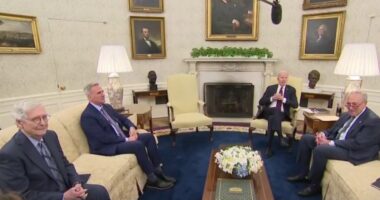
The pandemic set in motion a furious scramble to buy vacation homes. Now, curbs on financing those purchases will test that market’s resilience.
The number of buyers who locked in mortgage rates for second homes in February was up 93% from a year earlier, far outpacing the 32% climb for primary residences, according to real-estate brokerage Redfin Corp.
But Fannie Mae and Freddie Mac are putting up roadblocks. The two mortgage giants, whose government backing is crucial to holding down mortgage rates, earlier this year began to cap how many of these loans it purchases.
The coronavirus pandemic has had a counterintuitive effect on the housing market. Usually, a slowing economy weighs on home prices. But many white-collar workers have done well, keeping their jobs and saving money by not commuting to the office. Plus, the coronavirus brought record-low mortgage rates and stoked city-dwellers’ desires to escape cramped living. It fueled bidding wars and sight-unseen purchases across America’s vacation zones, which already had dwindling stocks of homes for sale, real-estate agents say.
The booming market is also luring investors, some of whom have generated substantial profit by fixing up old homes and then flipping them. Home-price growth rose to a 15-year high early this year, locking many middle-income families and laid-off workers out of buying.









